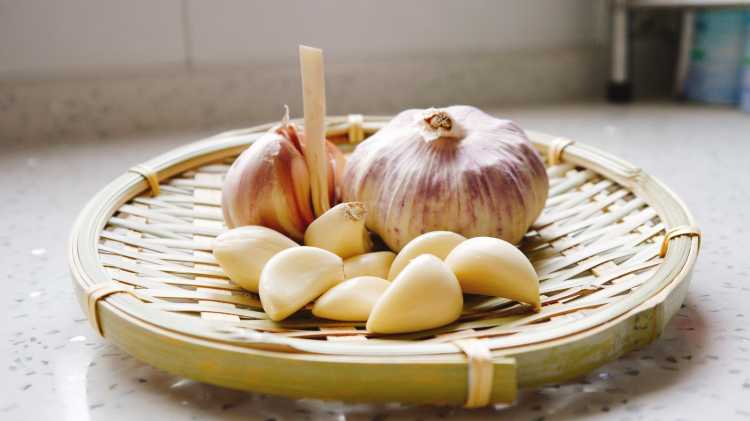Have you ever had a situation where you bought too much garlic and now you’re stuck with cloves that will go bad before you can use them all? Well, don’t worry, because you can freeze them! Garlic cloves hold their flavor well when frozen, so long as they’re properly stored. In this blog post, we’ll tell you how to freeze garlic cloves so that you can save them for later. Read on to learn more!

Quick Answer
Yes, you can freeze garlic cloves. The impact on taste and texture will be minimal, and they will last for about 2-3 months in the freezer.
Can You Freeze Garlic Cloves?
Garlic is a popular ingredient in many dishes, and it’s no wonder – it has a delicious flavor. But what do you do when you have more garlic than you can use before it goes bad? One option is to freeze it. Freezing garlic cloves has some impact on their taste and texture, but they will last for several months in the freezer.
When freezing garlic, the best way to do it is to blanch the cloves first. This means boiling them for a minute, then shocking them in ice water. After blanching, drain the cloves and spread them out on a baking sheet lined with parchment paper. Freeze the cloves for an hour or until solid, then transfer them to a container or baggie. They will keep in the freezer for up to six months.
How To Freeze Garlic Cloves?
Garlic is a popular cooking ingredient that can be used in many dishes. Freezing garlic cloves is an easy way to stock up on this ingredient so you can use it in your favorite recipes later. Here are the steps to freeze garlic cloves:
1. Start by peeling the garlic cloves and discarding the skin.
2. Spread the peeled garlic cloves out on a baking sheet lined with parchment paper.
3. Freeze the garlic cloves for 2-3 hours or until they are solid.
4. Once they are frozen, transfer them to a freezer-safe bag or container and store them in the freezer.
Precautions to Take When Freezing Garlic Cloves
When freezing garlic cloves, there are a few things to keep in mind. Firstly, make sure that the garlic is very clean before freezing it. Secondly, blanch the cloves for a minute or two before freezing them. This will help to preserve their flavor and color. Finally, freeze the cloves in an airtight container or bag.
How To Thaw Frozen Garlic Cloves
1. To thaw frozen garlic, place it in the refrigerator overnight or place it in a bowl of cold water for about 15-20 minutes.
2. Once it is thawed, remove the skin from the cloves and use as you would fresh garlic cloves.
3. If you need to use frozen garlic immediately, you can microwave it for a few seconds or run it under warm water. Just be careful not to cook it too long or it will lose its flavor.
How Long Does Garlic Cloves Last (Stays Fresh) Outside at Room Temperature?
Garlic cloves generally stay fresh for about two weeks when stored at room temperature.
It’s important to remember that garlic is a member of the onion family, and as such, it can cause severe skin irritation if mishandled. Always wash your hands thoroughly after handling garlic, and avoid contact with your eyes.
How Long Does Garlic Cloves Last (Stays Fresh) in the Fridge?
Garlic will stay fresh in the fridge for around two weeks.
When refrigerating garlic, it is best to keep the cloves intact and place them in a sealed container or plastic bag. This will help maintain their flavor and prevent them from drying out.
How To Use Up Extra/Leftover Garlic Cloves?
Here are a few ideas to help you use up your extra or leftover garlic cloves:
1. Garlic Hummus – Combine 2 cups cooked chickpeas, 3 cloves minced garlic, 2 tablespoons tahini sauce, and 1/4 cup olive oil in a food processor. Process until smooth. Season with sea salt and pepper to taste. Serve with fresh vegetables or whole grain pita chips.
2. Roasted Garlic and Tomato Soup – Preheat oven to 375 degrees F (190 degrees C). Cut 1 head of garlic into individual cloves, discarding the root end and skin. Drizzle with olive oil, then place in a small baking dish. Add 1/2 inch water to the dish, then cover
